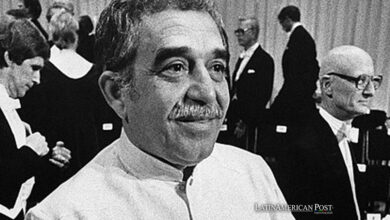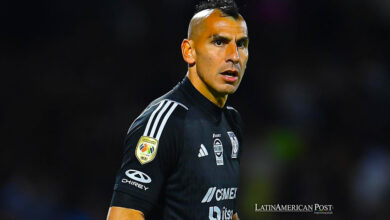Nicaragua: Does a strike change the national panorama?
For the organizers the national rally was total success, although there is no certainty about the effectiveness of that kind of measures

On June 12, the Nicaraguan Civic Alliance for Justice and Democracy, which brings together several sectors of the country, called for a new 24-hour national strike for last Thursday, June 14. The purpose of the strike was to demand an end to the "repression" and the resumption of a dialogue to resolve the crisis that has already killed more than 150 people, according to official reports from Human Rights NGOs. The Bishops of the country seek to resume the dialogue before the national strike and expect the government of Daniel Ortega to give in to the petitions. The bishops also supported the national strike in order to pressure President Ortega to stop the repression and end the violent confrontations that have been going on for almost two months.
Leer en español: Nicaragua: ¿Un paro sí cambia las cosas?
The organizers of the national strike won the support of the big companies and the most important guilds, such as taxi drivers. They asked public employees to join the protest and lose their fear of the threats they suffer; as a result, the country was paralyzed. Shops, roads, and cities were desolate and there was no one in the streets, there were only people in the concentration points. The Civic Alliance for Justice and Democracy, which brings together the private sector, civil society, students and peasants, aims to democratize and institutionalize Nicaragua to end the Ortega’s Government. The Alliance was the promoter of the strike.
It may interest you: "Venezuela is a Mafia State": Jeremy McDermott, Executive Director of InSight Crime
Does a strike change things?
The new national strike in Nicaragua was a total success for its organizers. However, for Javier Arguello – international analyst in an interview with CNN-, although the protests demonstrate the discontent of the population, it does not mean that Daniel Ortega is really going to resign from the presidency. "Although for the Civic Alliance considers the day was a success, really it was only possible to return to the negotiating table between the parties, but not that Ortega is going to hand over power."
For Arguello, the strike put governments in tight situations, "is the recent case of truck drivers in Brazil, teachers in Colombia, teachers in Mexico, opposition to the re-election of Evo Morales in Bolivia, but these cases did not overthrow the governments. Even the most relevant case that is Venezuela shows that this type of demonstrations are not easily received by the government in office".
For the international analyst, although in the negotiations agreements are reached, they are really reduced compared to what the promoters of the protest ask for. "Latin America in its history shows that in order to overthrow a government force is needed, that is to say a coup d'etat: Colombia with Rojas Pinilla, Chile with Pinochet, Panama with Noriega, The Coup d'Etat in Honduras to Zelaya, to name a few cases. The protest serves to draw attention, but the change of substance comes from the democratic elections, the case of Nicaragua demonstrates the disagreement that arises when a government is established in power for a long time."
Also read Paraguay: A history of dictatorships, political corruption, economic growth and drug trafficking
The country like a desert
During the strike, commercial establishments were closed and very few vehicles and pedestrians dared to go out IGNORE INTO the streets. Clashes were reported in some municipalities, which left at least five people dead: two in León, two in Bilwi and one in Tipitapa, according to the AFP.
For the opposition leader and member of the Electoral Observatory of Nicaragua, Haydee Castillo, the national strike last Thursday, June 14, was a great success because the link between the people was total. "People are supporting the struggle we have, corruption has to end, and President Daniel Ortega has to see that the faction of the people who support him is small and that the people want elections," Castillo assured the CB24 network.
The protests against Ortega and his wife, Vice President Rosario Murillo, began on April 18 due to failed social security reforms and became a demand for resignation, after eleven years in power, with accusations of abuse and corruption.
Latin American Post | Carlos Eduardo Gómez Avella
Translated from “Nicaragua: ¿Un paro sí cambia las cosas?”





